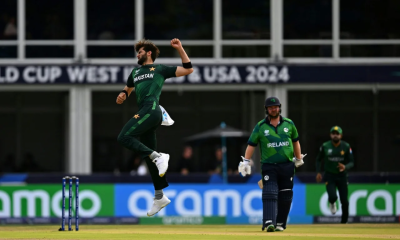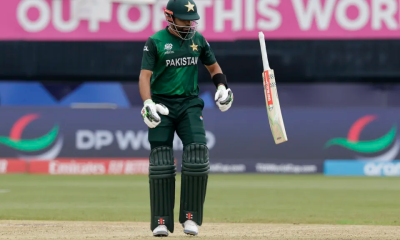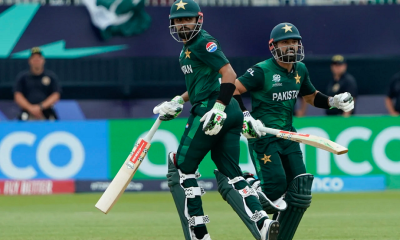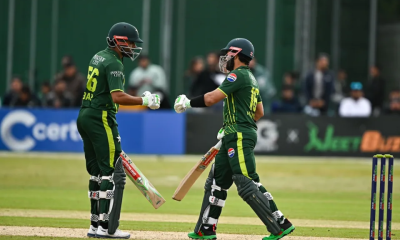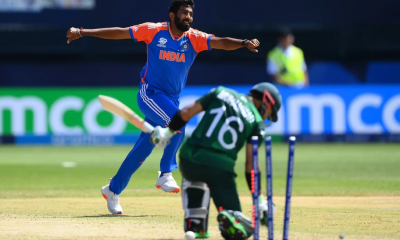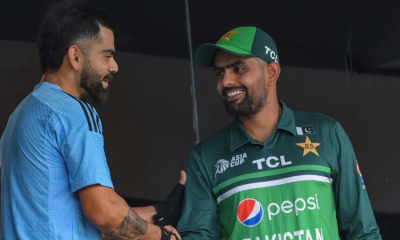Foreign News
Pakistan’s Imran Khan gets bail in state secrets case ahead of key election

Pakistan’s former Prime Minister Imran Khan has been granted bail in a case alleging he leaked state secrets, but he remains in jail on other charges ahead of the general election due in February.
The Supreme Court on Friday granted Khan bail in the case, but it was not clear how he could be released while serving a three-year sentence for corruption and facing other charges.
Khan – detained since August – alleges the powerful military is colluding with dynastic parties that have long dominated Pakistan to crush his political party and prevent him from standing for office.
The 71-year-old has been pummelled by a barrage of legal cases since being removed from office in April 2022 after falling out with the top brass, and has twice been jailed.
“The case has completely collapsed, and Imran Khan and Shah Mahmood Qureshi have finally been granted bail,” lawyer Salman Safdar told reporters outside court, referring to Khan’s former foreign minister who is being held in the same case.
Prosecutors allege the two leaders mishandled a diplomatic cable, known as cypher, sent by Pakistan’s ambassador to the United States. Both have repeatedly denied the charge, saying the cable was proof of conspiracy by the Pakistani military and the US government to topple his government in 2022 after he visited Moscow just before Russia’s invasion of Ukraine.
Washington and Pakistan’s military have denied the accusations.
A private trial in the cypher case took place inside jail until a legal challenge forced the court to restart open proceedings, with observers and media present.
On Friday, the Supreme Court in its short order said “there are not reasonable grounds for believing” that an offence under the colonial-era Official Secrets Act, which carries a possible 14-year prison term or death sentence, was committed by Khan.
“There are sufficient grounds for further inquiry into their guilt of said offence, which is to be finally decided by the learned trial court,” the top court said.
Khan’s Pakistan Tehreek-e-Insaf (PTI) party said he remains incarcerated over numerous separate corruption cases, with scant chance he will leave prison to contest elections due February 8.
“The prospect of him obtaining relief in the near future appears to be very slim,” party lawyer Khalid Yousaf Chaudry told AFP news agency.
The fate of politicians in Pakistan has historically ridden on their relationship to the military establishment, which has directly ruled the country on several occasions.
Pakistan is scheduled to hold its general election on February 8, 2024.
Khan was disqualified by the Election Commission of Pakistan (ECP) in August for five years following his conviction in a case related to illegal purchase and sale of foreign gifts he received as prime minister.
Khan approached the Islamabad High Court to set aside his disqualification. However, on Thursday, the high court rejected his plea, blocking his way to contest the upcoming election.
The former cricket star-turned-politician’s legal team is now expected to file an appeal in the Supreme Court to allow Khan to contest the election.
(Aljazeera)
Foreign News
South Korea’s former first lady sentenced to jail term in bribery case

A South Korean court has sentenced former First Lady Kim Keon Hee to one year and eight months in prison after finding her guilty of accepting bribes from the Unification Church, according to South Korea’s official Yonhap news agency.
The Seoul Central District Court on Wednesday cleared Kim, the wife of disgraced ex-President Yoon Suk Yeol, of additional charges of stock price manipulation and violating the political funds act.
Kim was accused of receiving bribes and lavish gifts from businesses and politicians, as well as the Unification Church, totaling at least $200,000.
The prosecution team had also indicted Unification Church leader Han Hak-ja, now on trial, after the religious group was suspected of giving Kim valuables, including two Chanel handbags and a diamond necklace, as part of its efforts to win influence with the president’s wife.
Prosecutors in December said Kim had “stood above the law” and colluded with the religious sect to undermine “the constitutionally mandated separation of religion and state”.

Prosecutor Min Joong-ki also said South Korea’s institutions were “severely undermined by abuses of power” committed by Kim.
The former first lady had denied all the charges, claiming the allegations against her were “deeply unjust” in her final testimony last month.
But she has also apologised for “causing trouble despite being a person of no importance”.
[Aljazeera]
Foreign News
Plane crash kills prominent Indian politician Ajit Pawar
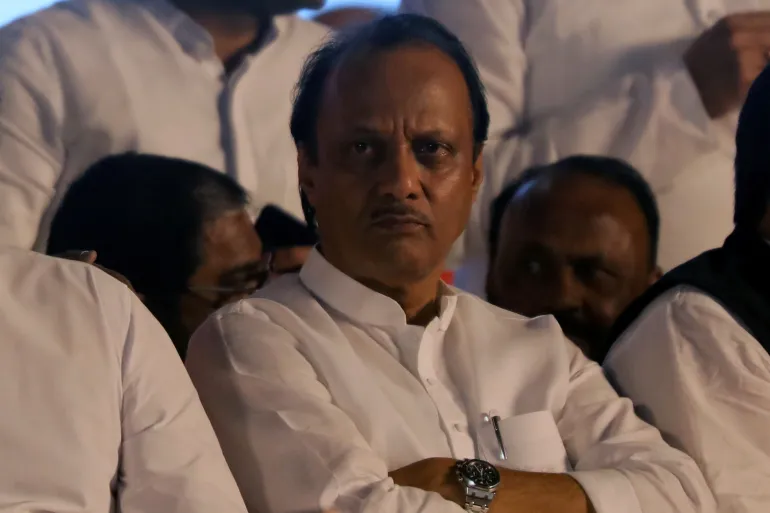
A plane crash has killed the deputy chief minister of India’s Maharashtra state, Ajit Pawar, the country’s aviation regulator has said.
The plane, which took off from the state capital, Mumbai, on Wednesday, crash-landed at the airport in Pawar’s constituency of Baramati, according to the Directorate General of Civil Aviation (DGCA).
Two members of the prominent politician’s staff and two crew members were also reported to have been killed.
The cause of the crash has not yet been officially confirmed.
Flightradar24, an online flight tracking service, said the aircraft was attempting a second approach to Baramati airport when it crashed.
The Times of India newspaper quoted DGCA officials as saying the aircraft, a Learjet 45 operated by a company called VSR, crashed at about 8:45am local time (03:15 GMT).
The daily said Pawar, the nephew of veteran politician Sharad Pawar, who founded the Nationalist Congress Party (NCP), was on his way to attend a public rally for the district council elections.
A witness quoted by the newspaper said the aircraft exploded moments after hitting the ground.
“When we rushed to the spot, the aircraft was on fire. There were four to five more explosions. People tried to pull the passengers out, but the fire was too intense,” said the witness.

Pawar, 66, built his political base through the grassroots cooperative movement. He was a key figure in state politics and served as the second-highest elected official in Maharashtra, as part of the larger federal governing coalition led by Prime Minister Narendra Modi.
He wielded considerable influence in the state’s vibrant sugar belt and was known for his ability to mobilise rural voters.
[Aljazeera]
Foreign News
Naqvi casts uncertainty on Pakistan’s participation in T20 World Cup after Bangladesh ouster
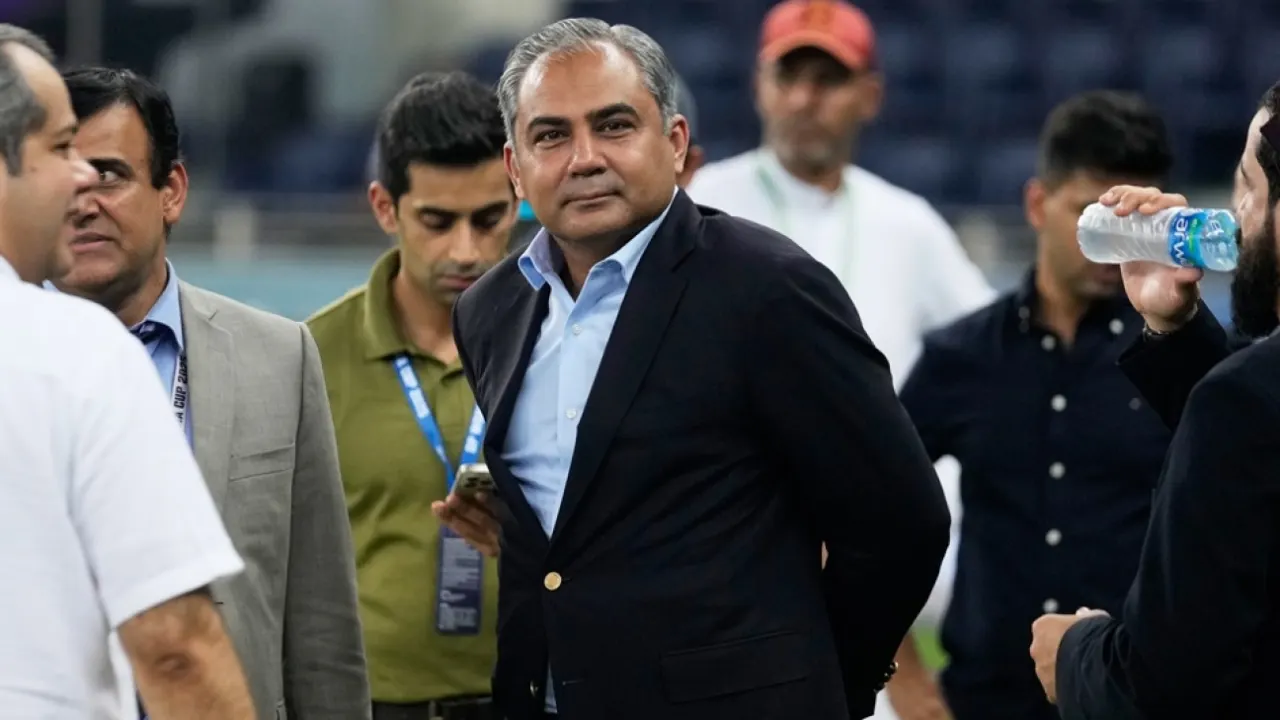
Pakistan’s participation at the upcoming Men’s T20 World Cup 2026 has been thrown into uncertainty after the PCB chairman Mohsin Naqvi said a final decision would be made after talking to Pakistan’s government. Speaking shortly after the ICC officially removed Bangladesh from the T20 World Cup owing to their refusal to play in India, Naqvi accused the ICC of “double standards” favouring India, and termed what happened to Bangladesh “an injustice”.
“Our stance on World Cup participation will be what the government of Pakistan instructs me,” he said. “The Prime Minister is not in Pakistan right now. When he returns, I’ll be able to give you our final decision. It’s the government’s decision. We obey them, not the ICC.”
Over the past week or so, Pakistan has firmly thrown its support behind Bangladesh in their dispute with the ICC demanding a venue outside of India to play their T20 World Cup matches. At an ICC meeting last week, the PCB was understood to be the only board to back the BCB in their stance. The tournament is jointly hosted by India and Sri Lanka, but Bangladesh’s games were all scheduled in India. Bangladesh, however, have said it is no longer safe for them to play in India after the BCCI, on January 3, instructed Kilkata Knight Riders to release Mustafizur Rahman rom their IPL 2026 squad.
Though no reason was stated for that directive, it came amid deteriorating relations between India and Bangladesh. On January 4, the BCB wrote to the ICC after consultation with the government that the Bangladesh team would not travel to India for its T20 World Cup matches due to security concerns, a stance it stuck to through several subsequent discussions with the ICC.
The ICC has repeatedly refused Bangladesh’s request, and earlier this week gave them an ultimatum demanding them to accept the schedule as it was, or face being removed from the tournament. On Saturday, with Bangladesh sticking to their position, the ICC formally announced Bangladesh would not be part of the T20 World Cup, and would be replaced instead by Scotland.
Naqvi was critical of the decision, calling it an injustice to Bangladesh. “I think Bangladesh has been hard done by,” he said. “You can’t have double standards. You can’t say for one country [India] they can do whatever they want and for the others to have to do the complete opposite. That’s why we’ve taken this stand, and made clear Bangladesh have had an injustice done to them. They should play in the World Cup, they are a major stakeholder in cricket.”
While there have been local, unverified reports that the PCB would refuse to participate in the World Cup in solidarity with Bangladesh should they be removed, the PCB has declined to confirm to ESPNcricinfo when approached. Naqvi’s comments to the media on Saturday was the first time anyone at the PCB has directly addressed the issue, where he repeatedly said the decision was no longer in the hands of the PCB.
“If the government of Pakistan says we mustn’t play, then maybe the ICC will bring in a 22nd team (after Scotland). It’s up to the government.”
No specific reason was given by Naqvi other than to support Bangladesh, as to why government permission would now be required for an event that starts in two weeks. Last year, both BCCI and PCB, with the approval of ICC, signed up to a hybrid model agreement by which both countries would play each other on neutral territory for all global events in the 2024-27 rights cycle.
Pakistan play all their games in Sri Lanka for this event (which already was a co-hosted event) and are scheduled to play the opening game of the tournament, against Netherlands on February 7. They are scheduled to play India on February 15 in Colombo in their group stage clash.
[Cricinfo]
-

 Business3 days ago
Business3 days agoComBank, UnionPay launch SplendorPlus Card for travelers to China
-

 Business4 days ago
Business4 days agoComBank advances ForwardTogether agenda with event on sustainable business transformation
-

 Opinion4 days ago
Opinion4 days agoConference “Microfinance and Credit Regulatory Authority Bill: Neither Here, Nor There”
-
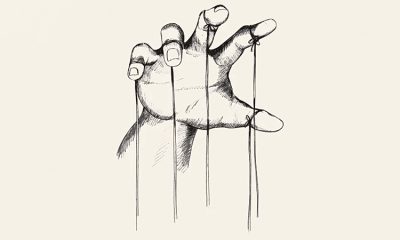
 Opinion6 days ago
Opinion6 days agoA puppet show?
-

 Opinion3 days ago
Opinion3 days agoLuck knocks at your door every day
-

 Features6 days ago
Features6 days ago‘Building Blocks’ of early childhood education: Some reflections
-

 Business5 days ago
Business5 days agoDialog Brings the ICC Men’s T20 Cricket World Cup 2026 Closer to Sri Lankans
-
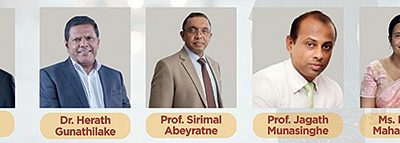
 News4 days ago
News4 days agoRising climate risks and poverty in focus at CEPA policy panel tomorrow at Open University


